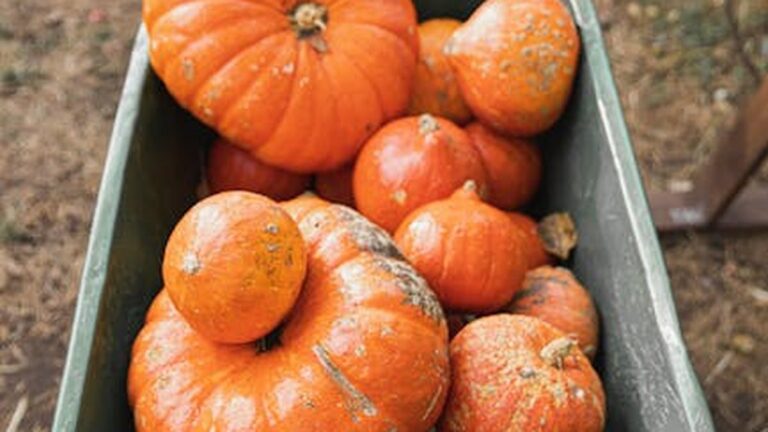Flu Season 2025: Advanced Strategies for Staying Healthy and Boosting Immunity
As the leaves change and the weather cools, it’s time to start thinking about Flu Season. While the flu is a common illness, it can significantly disrupt your life and even lead to serious complications, especially for vulnerable populations. Getting ahead of the curve and implementing proactive strategies is crucial for staying healthy during Flu Season 2025. This guide will provide you with advanced, actionable tips to boost your immunity, protect yourself from infection, and manage symptoms effectively.
Understanding the Flu and Its Impact
Influenza, commonly known as the flu, is a contagious respiratory illness caused by influenza viruses. These viruses infect the nose, throat, and sometimes the lungs. The Centers for Disease Control and Prevention (CDC) estimates that the flu has resulted in 9 million to 41 million illnesses, 140,000 to 710,000 hospitalizations, and 12,000 to 52,000 deaths annually in the United States between 2010 and 2020. Understanding the severity and prevalence of the flu underscores the importance of preventative measures.
Flu Virus Variations
The influenza virus is constantly changing, which is why a new flu vaccine is developed each year. These changes can occur through antigenic drift (small, gradual changes) or antigenic shift (sudden, major changes). Antigenic shift is less frequent but can lead to pandemics. Staying informed about the dominant strains circulating each year, often announced by health organizations like the World Health Organization (WHO) and the CDC, is vital for making informed decisions about your health. The Flu Vaccine Updates are essential to consider before the season.
Proactive Immunity Boosting Strategies
Building a strong immune system is your first line of defense against the flu. Here are some advanced strategies to Boost Immunity Flu before and during Flu Season:
Nutrition for Immunity
A balanced diet rich in vitamins, minerals, and antioxidants is crucial. Focus on:
- Vitamin C: Found in citrus fruits, berries, and bell peppers. Vitamin C is an antioxidant that supports immune cell function.
- Vitamin D: Often lacking, especially in winter months. Consider supplementation. Vitamin D plays a role in regulating the immune system.
- Zinc: Found in seafood, meat, and nuts. Zinc is essential for immune cell development and function.
- Probiotics: Support gut health, which is closely linked to immunity. Consider fermented foods like yogurt, kefir, and sauerkraut.
Case Study: A study published in the British Journal of Nutrition found that individuals who consumed a diet rich in fruits and vegetables had a significantly lower risk of developing respiratory infections, including the flu.
Prioritize Sleep and Stress Management
Chronic stress and lack of sleep weaken the immune system. Aim for:
- 7-9 hours of sleep per night: Sleep deprivation impairs immune cell function.
- Stress-reducing activities: Meditation, yoga, spending time in nature, and engaging in hobbies can lower stress hormones and boost immunity.
Practical Tip: Establish a consistent sleep schedule, even on weekends, to regulate your body’s natural sleep-wake cycle.
Regular Exercise
Moderate exercise can improve immune function by increasing the circulation of immune cells. Aim for at least 150 minutes of moderate-intensity aerobic exercise per week. Avoid overtraining, as it can suppress the immune system.
The Flu Vaccine: Current Recommendations for 2025
Vaccination remains the most effective way to prevent the flu. Here’s what you need to know about the Flu Vaccine Updates for 2025:
Understanding Vaccine Types
Various flu vaccines are available, including:
- Inactivated influenza vaccine (IIV): Given as a shot.
- Recombinant influenza vaccine (RIV): Another type of shot that doesn’t use flu virus grown in eggs.
- Live attenuated influenza vaccine (LAIV): A nasal spray (not recommended for certain groups).
Who Should Get Vaccinated?
The CDC recommends that everyone 6 months and older should receive a flu vaccine each year, with rare exceptions. Vaccination is particularly important for:
- Pregnant women: Flu vaccination protects both the mother and the baby.
- Young children (6 months to 5 years): They are at higher risk of complications.
- Older adults (65 years and older): Their immune systems are often weaker.
- People with chronic health conditions: Such as asthma, diabetes, and heart disease.
Addressing Vaccine Concerns
Some people worry about side effects from the flu vaccine. Common side effects are usually mild and include soreness at the injection site, headache, or low-grade fever. The flu vaccine cannot cause the flu. Talk to your doctor if you have concerns or questions about the vaccine.
Effective Strategies for Flu Prevention
Beyond vaccination and immunity boosting, other preventative measures can significantly reduce your risk of catching the flu. These are crucial for Flu Prevention 2025.
Hygiene Practices
Good hygiene is essential for preventing the spread of the flu virus:
- Wash your hands frequently: Use soap and water for at least 20 seconds.
- Use hand sanitizer: When soap and water are not available, use an alcohol-based hand sanitizer with at least 60% alcohol.
- Avoid touching your face: The flu virus can enter your body through your eyes, nose, and mouth.
- Cover your coughs and sneezes: Use a tissue or your elbow.
Social Distancing and Masking
During peak Flu Season, consider practicing social distancing and wearing a mask in crowded indoor settings, especially if you are at high risk of complications.
Environmental Measures
Keeping your environment clean can also help prevent the spread of the flu:
- Clean and disinfect surfaces: Regularly disinfect frequently touched surfaces, such as doorknobs, light switches, and countertops.
- Ventilate your home: Open windows to improve air circulation.
Managing Flu Symptoms with Natural Remedies
If you do get the flu, several Natural Flu Remedies can help alleviate symptoms:
Home Remedies
- Rest: Get plenty of rest to allow your body to recover.
- Hydration: Drink plenty of fluids, such as water, broth, and herbal tea, to prevent dehydration.
- Steam inhalation: Can help relieve congestion.
- Honey: Can soothe a sore throat (not for infants under 1 year old).
- Saltwater gargle: Can relieve a sore throat.
Herbal Remedies
Some herbal remedies have been traditionally used to alleviate flu symptoms. However, it’s important to consult with a healthcare professional before using them, especially if you have underlying health conditions or are taking medications.
- Elderberry: Some studies suggest that elderberry extract may shorten the duration of flu symptoms.
- Echinacea: May help boost the immune system.
- Ginger: Can help relieve nausea and vomiting.
When to Seek Medical Attention
While many flu cases can be managed at home, it’s important to seek medical attention if you experience:
- Difficulty breathing
- Chest pain
- Severe weakness or dizziness
- Dehydration
- Seizures
- Worsening of chronic medical conditions
These symptoms could indicate serious complications, such as pneumonia or secondary bacterial infections.
Conclusion: Taking Control of Your Health This Flu Season
Preparing for Flu Season 2025 requires a multi-faceted approach that includes vaccination, immunity boosting, preventative measures, and effective symptom management. By implementing the advanced strategies outlined in this guide, you can significantly reduce your risk of catching the flu and protect your health. Remember to stay informed about the latest recommendations from health authorities and consult with your healthcare provider for personalized advice. Prioritize your health and take proactive steps to enjoy a healthy and productive year.
Frequently Asked Questions
Q1: How can I boost my immunity for flu season?
This important question is covered in detail in the sections above. Review the related content for comprehensive answers.
Q2: What are the latest flu vaccine recommendations for 2025?
This important question is covered in detail in the sections above. Review the related content for comprehensive answers.
Q3: What are effective natural remedies for flu symptoms?
This important question is covered in detail in the sections above. Review the related content for comprehensive answers.
References & Further Reading
For more information about Flu Season 2025: Advanced Strategies for Staying Healthy and Boosting Immunity, consider these authoritative sources:
-
Centers for Disease Control and Prevention
Leading national public health institute of the United States.
Source: cdc.gov -
World Health Organization
Global authority on international public health.
Source: who.int -
Mayo Clinic Healthy Lifestyle
Evidence-based health advice from medical experts.
Source: mayoclinic.org
These external resources provide additional scientific and medical insights.






